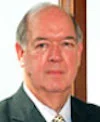 |
| Ken Scudder |
The sign-stealing scandal that led to the season-long suspensions and subsequent firings of Houston Astros General Manager Jeff Luhnow and Manager A.J. Hinch provide more visible examples of crisis management than your standard corporate crisis does. The statements and reactions from Major League Baseball, Astros owner Jim Crane, Luhnow and Hinch, give communicators—and sports fans—a glimpse of how each of the principals approach a crisis and how they execute their plan.
Luhnow in particular offers a great example of what not to say as you head out the door. MLB Commissioner Rob Manford’s statement was particularly critical of Luhnow, holding him responsible for failing to prevent the Astros’ cheating:
“Despite his knowledge of the Red Sox incident in September 2017, and receipt of both my September 15, 2017 memorandum and Joe Torre’s March 2018 memorandum, Luhnow failed to take any adequate steps to ensure that his Club was in compliance with the rules. Luhnow did not forward the memoranda and did not confirm that the players and field staff were in compliance with MLB rules and the memoranda. Had Luhnow taken those steps in September 2017, it is clear to me that the Astros would have ceased both sign-stealing schemes at that time.”
The statement also outlines larger problems within the Astros organization that MLB blames Luhnow for.
“But while no one can dispute that Luhnow’s baseball operations department is an industry leader in its analytics, it is very clear to me that the culture of the baseball operations department, manifesting itself in the way its employees are treated, its relations with other Clubs, and its relations with the media and external stakeholders, has been very problematic.”
Luhnow’s response to this report is also “very problematic.” In the first paragraph of a statement released by his lawyer, Luhnow does “accept responsibility for rules violations that occurred on my watch” and apologies to the Astros and their fans.
But, then, things go downhill fast. Luhnow starts the second paragraph with a sentence that may live in infamy, “I am not a cheater.” Quick tip—if your best defense is to paraphrase Richard Nixon, you’re on the wrong path. Also, it is never advisable to repeat a negative, even if you can categorically prove it is not true.
He goes on to claim he “did not know rules were being broken,” even though the Commissioner’s report has evidence he did. Perhaps worst, he points the finger at everyone but him and Crane:
“The sign-stealing initiative was not planned or directed by baseball management; the trash-can banging was driven and executed by players, and the video decoding of signs originated and was executed by lower-level employees working with the bench coach.”
Another quick tip—never blame “lower-level employees.” Even though this language was in the MLB statement, it sounds condescending and snooty coming from an executive. And, passing the buck like this just makes you look either out of touch, disingenuous or conniving. None is a good look.
Compare this to what Hinch said about the sign-stealing scheme in his statement:
“As a leader and Major League Manager, it is my responsibility to lead players and staff with integrity that represents the game in the best possible way. While the evidence consistently showed I didn’t endorse or participate in the sign stealing practices, I failed to stop them and I am deeply sorry.”
Hinch does more than just “take responsibility” in this statement. He outlines what he should have done, and apologizes for not doing it. Hinch appears sincerely chagrined and sorry; Luhnow seems to feel he’s above it all and only regrets getting caught.
Let’s assume for the sake of argument that Luhnow knew nothing about this scheme, as highly unlikely as that might be. If he was truly a leader, he would take responsibility for the actions of those he supervised and accept the consequences. Instead, he lashed out and showed little-to-no remorse.
Both Hinch and Luhnow will have a long baseball season to think about how they got to this point and where they go next. Their successes on the field will almost guarantee them further employment. But, based on how they both handled their exits, I believe that Hinch will be the “easier” hire for a team down the road and will be back in a dugout before Luhnow is back in an executive suite.
***
Ken Scudder has provided media training, presentation training, crisis communications training and consulting, and writing and editing to business leaders, celebrities, and politicians for more than 20 years.


 Even the most iconic sporting or ceremonial event can be deep-sixed by an overzealous member of the crowd, so crisis comms pros need to be prepared.
Even the most iconic sporting or ceremonial event can be deep-sixed by an overzealous member of the crowd, so crisis comms pros need to be prepared. The Super Bowl, with its massive audience and sky-high ad cost, creates intense pressure to deliver. But when they hit the mark, these ads can become cultural touchstones.
The Super Bowl, with its massive audience and sky-high ad cost, creates intense pressure to deliver. But when they hit the mark, these ads can become cultural touchstones. Teneo has hired Nick Greenslade, deputy sports editor at The Times and Sunday Times, as managing director for its strategy and communications unit in London.
Teneo has hired Nick Greenslade, deputy sports editor at The Times and Sunday Times, as managing director for its strategy and communications unit in London. Jon Schwartz, a former SVP, communications, marketing, digital & social for the Big Ten Conference, is signing up with Prosek Partners to launch a new sports business unit.
Jon Schwartz, a former SVP, communications, marketing, digital & social for the Big Ten Conference, is signing up with Prosek Partners to launch a new sports business unit. USA Fencing has retained Finn Partners ahead of the 2024 Paris Summer Olympics and Paralympics Games.
USA Fencing has retained Finn Partners ahead of the 2024 Paris Summer Olympics and Paralympics Games.


 Have a comment? Send it to
Have a comment? Send it to 
No comments have been submitted for this story yet.